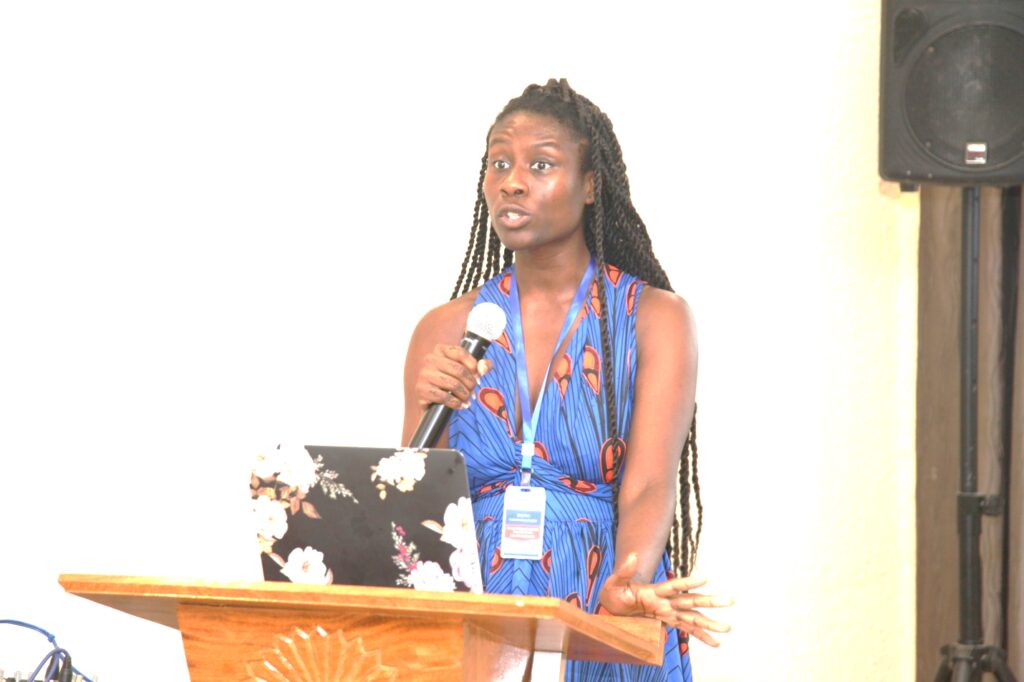By Yunus S Saliu
In a very attentive and interactive symposium – Gambian Cultural Heritage Going Digital organised by the National Centre for Arts and Culture (NCAC) and its German partners, the University of Hamburg and the Gerda Henkel Foundation, Oluwatoyin Mbachu, a Ph.D. candidate at King’s College London whose research investigates the contemporary discourse that exists between the Nigerian Aguda and their Afro-Latin counterparts: Black Brazil and Cuba discussed the digital materials used to assert ‘diasporic’ consciousness as part of a proposed Afro Brazilian Diaspora.
And also, how their use of digital materials facilitates further participant authority in international academic research.
The three days international symposium on oral history was held at the Senegambia Beach Hotel where scholars from different countries attended, while 20 academic papers by scholars from the Gambia, Senegal, Guinea Bissau, Guinea Conakry, Nigeria, USA, UK, Italy, and Germany making the forum a truly international academic session.
Researcher Mbachu said the term ‘digital diaspora’ has been employed by Laguerre (2010) to describe the use of IT connectivity by real-life diasporas to engage in virtual interactions for various political, economic, social religious, and communicational purposes that may mainly concern the ‘homeland,’ the ‘host land,’ or the diasporic groups’ trajectory abroad.
This virtual discourse may occur between members of the same diasporic group living in the same foreign country or diasporic members across the globe, noting that “the internet becomes another site in which disaporic consciousness can be performed without the constraints of borders and distance. This is evident in the case of the Lagosian Aguda community that has asserted diasporic consciousness physically and has begun to engage with their community worldwide with the aid of the internet and digital technology.”
Given that digital diasporas mirror their real-life counterparts, she related the real-life diasporic situation of the Lagosians Aguda before discussing how they assert diasporic consciousness in the physical realm and mirrored this in the virtual sphere.
Situating the Lagosian Aguda within the Afro-Brazilian Diaspora, she said despite their transatlantic history, the Afro-Latin heritage of the Nigerian Aguda is not as commonly known as the historic Yoruba influence on the Afro-Latin community.
Despite little discussion about the contemporary diasporic experience of the Lagosian Aguda, she disclosed that her investigation has shown that such interactions between this community and Afro-Brazil appear to still exist today and have been facilitated by digital technology.
However, she disclosed that digital technology plays a huge role in maintaining connections and facilitating influential discourse between the malleable ‘home’ and ‘host’ land that otherwise may cease to exist given the fragility of cultural memory alone.
She said cultural memory plays its role, but it is limited, “oral history is useful in the sense that through oral history from their grandparents, or ‘Papaes/Mamães’ as they are commonly referred to by Aguda community members, Afro-Brazilian cultural tradition from Bahia was passed down through the generations. This includes maintaining cultural celebrations such as Carnival and Brazilian cultural play ‘Bumba Meu Boi’, the use of a few Portuguese terms and titles, and consumption of certain dishes such as Frejon and Mingau.”
So, she added, the internet provides a means to virtually recreate all those sites which have metaphorically been eroded by distance (Ponzanesi, 2010). Hence, diasporic communities can use it to keep up with their homeland and culture, therefore, strengthening, their ties and lessening isolation (Poster, 1995; Ponzanesi, 2001).

